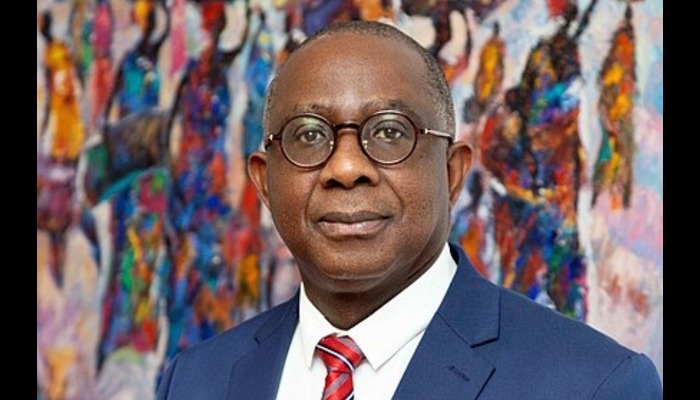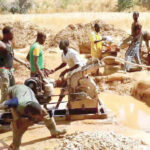
The Senior Special Adviser to the President, African Development Bank, Prof. Oyebanji Oyelaran-Oyeyinka, has said Nigeria’s economy will be transformed through industrial agribusiness and industrial value-added processing.
Speaking on Thursday at a symposium organised in honour of Gboyega Fatimilehim at 70, Oyeyinka in his presentation titled, ‘Paradox of a rich country and its poor people: Reimagining and rebuilding a prosperous Nigeria,’ explained that the Nigerian system and its current agricultural system is not industrialised.
He pointed out that it is characterised by low yields, subsistence farming, and poverty, making it unproductive.
The symposium, themed, ‘Let us rebuild: Future-focused solutions for economic growth,’ was organised by Diya Fatimileyin&Co.
Speaking further, Oyebanji suggested that agribusiness and Industrialisation must be linked together to achieve structural transformation.
He revealed that inequality and poverty were the main sources of social tension and a powerful channel for social conflict and widespread mistrust between different groups.
Oyebanji mentioned some main causes of slow economic growth, which deepens poverty and widens inequality in Nigeria, including “oil dependence and poor productivity growth, rent-taking; expending resources to gain wealth by increasing one’s share of currently existing wealth instead of trying to create new wealth.
The Dutch disease effect explains how resource abundance that generates large quantities of foreign exchange can distort exchange rates and domestic wages, thereby damaging the growth of other sectors of the economy.”
He, however, suggested transforming the economy through induced structural transformation, saying the most profound change was that the economy would need to transform from rural-based agrarian agriculture to a modern economy, based on industrial agribusiness and industrial value-added processing.
He said, “One solution is rebuilding Nigeria’s industrial system. Manufacturing-dependent and industrialised economies provide greater opportunities for diversified economies, higher productive capacity, creation of employment opportunities, and poverty reduction.
“Economic development requires structural change from low to high-productivity activities and the industrial sector is a key engine of growth in the development process. Virtually all cases of high, rapid and sustained economic growth in modern economic development have been associated with industrialisation, particularly growth in manufacturing production.
“Commodity exports can lead to high but, as we have experienced in Nigeria, not sustained economic growth. Security and basic services should be prioritised. Nigeria is ranked very high in the index of state fragility much of it as we argue in the foregoing, is a result of over-dependence and concentration on a mineral economy that has been tirelessly exploited by the power elite. The economy should be diversified, a strong manufacturing sector leads to a more diversified economy.”
Managing Director of Planet Projects Limited, Mr Biodun Otunola, who spoke on ‘Rethinking Nigeria’s Infrastructure Development in the Past 25 Years,’ condemned the practice of bringing in foreign engineers, legal and financial professionals to lead, advise, and execute construction projects in Nigeria.
“Infrastructure is a big problem in Nigeria, and the heart of our problem is policymakers. There is no single engineer in our team; they go to London to bring in consultants, and that is the reason we are in this quagmire. We have allowed policy-making to be determined by finance people, not solution-driven experts.
“What is a lawyer doing in the Ministry of Works? If his background is in accounting, he cannot provide power solutions. We have put the wrong people in the right places. 80 per cent of our problems are technical. Projects in Lagos are transaction-led, not solution-led,” Otunla said.
He advised that Nigeria, being at the construction stage, needs to build and invest in more artisans such as welders, carpenters, and others.





